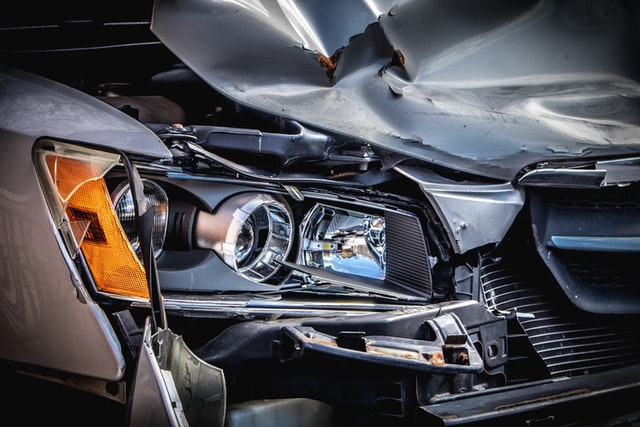
Any sort of motor vehicle accident can be distressing and a headache to deal with, but rear end vehicle collisions in particular can be problematic. Rear end or hit from behind vehicle accidents involve a collision between the front of one vehicle and the back of another. These accidents can occur on the road for a number of reasons, most often being chalked up to speeding, driver distractions or general inattentiveness. Unfortunately, rear end collisions make up a large amount of motor vehicle accidents, and the consequences can be more than a dented bumper.
If you have been in a rear end collision and sustained injuries, you may be able to claim compensation if it resulted from someone else’s negligence.
What Are Rear End Collisions & Who Is At Fault?
Rear end collisions can happen in a variety of contexts, and who is deemed at fault plays a key role in the potential case you can make for claiming compensation. Determining who is at fault for the accident is crucial since this person will be held liable for any injuries sustained or damage. Assessing fault can be difficult, but there are a few general principles that are used for guidance when it comes to rear end collisions.
Accidents involving two vehicles:
In rear end collisions where only two vehicles are involved, the driver of the car behind is deemed to be at fault. It is important to note however that if the accident occurred as a result of the car in front rolling backwards or reversing, the driver of the front car will be liable (regardless of how close the car was behind).
Accidents involving three or more vehicles:
When an accident occurs involving three or more vehicles, the last car may be held liable for damage to all cars involved if it caused each subsequent car to hit the vehicle in front of them. If all the cars in front of the last vehicle had already collided though, each car is generally only liable for the damage caused to the vehicle in front of them.
Accidents in car parks:
Car parks tend to be a more complicated landscape when it comes to rear end collisions, but generally speaking:
- If a car is reversing out of a carpark and hits you from behind, the reversing car will be at fault
- If both vehicles are reversing simultaneously and collide, both will share equal fault and liability for the collision
- If both parties are reversing but one stops, the vehicle that continues to reverse and causes the collision will be at fault.
What Injuries are Common after a Rear End Collision?
The types of injuries you may experience after a rear end collision can vary. Most commonly people in rear end collisions experience whiplash injuries or spinal injuries as a result of the sudden forward or backward force you experience, which affects your head and spine. Being in a vehicle that is hit from behind can have more risk associated with it as the impact is sudden and often unexpected, meaning your body has not had time to brace for the force. Other injuries that people may experience as a result of a rear end collision can include:
- Broken or fractured ribs
- Bruising
- Brain or head injuries
- Lacerations (particularly to the head or face)
- Paralysis
In the event of an accident, even if you initially feel alright, it is always best to get an assessment from a doctor, which can later be beneficial both for your long term health and if you choose to make a claim.

Can I Claim Compensation If I Have Been Rear Ended?
There a few factors to consider before deciding if you have a rear end collision compensation claim. If you are able to claim compensation after being rear ended, the amount you can claim will also vary case by case and depends on a few elements including who is deemed to be at fault for the collision and what you are intending to claim for.
If you intend to make a claim for personal injuries you sustained for the accident, strict time limits will apply depending on who you are claiming from.
Compulsory Third Party (CTP) insurers allow 9 months from the date of the incident or the date symptoms of your injuries first appeared (because you may not have known about them at the time the incident occurred).
If the ‘at fault’ vehicle was unidentified or unregistered, you will need to lodge a claim with the Nominal Defendant and in these cases, you only have 3 months.
For any other compensation claims for personal injuries, legal action must be commenced within 3 years of the date of injury, otherwise you will lose the right to claim compensation.
It is important to remember though that depending on the circumstances surrounding your injury (e.g. where it occurred or who you are claiming against) there may be specific pre-court procedures that apply which may mean you have shorter time limits.
Missing these time limits means you may forfeit your right to claim unless you can provide good reason as to why you delayed and can justify why you should still be allowed to proceed with your claim.
People aged under 18 will typically have until they are 21 to start the claims process.
Generally speaking, getting started on a claim sooner rather than later is the best thing for your case, especially since it is harder to get accurate witness statements the further away from the incident you get, and if there was CCTV footage it will be harder to ascertain.
What Can I Claim For If I Am Rear Ended?
In situations where a rear end collision has occurred, the type of claim you will generally be making is a personal injury compensation claim. In these cases, the compensation is intended to cover any losses you experienced as a result of your injuries. Things you may be able to claim for include:
- Medical costs including hospital or surgical bills, or rehabilitation costs
- Lost superannuation
- Care and assistance costs
- Lost income or future earning capacity
- Loss of quality of life
How much damage your vehicle sustains can depend on the speeds involved in the collision, but generally claims for damaged vehicles can be made to the at fault party. The at fault party is liable to compensate you regardless if they are insured for third party property damage. If they have insurance, they can then choose to make a claim with their insurer.

How Much Can I Receive For Rear End Compensation?
How much compensation you receive for a rear end collision is based on your unique circumstances. The severity of the accident, the injuries you sustained and its impact on your life (or quality of life) are all considered by the court when deciding on a compensation amount. For example, the amount of compensation someone who sustained minor injuries in a crash may sustain will different significantly to someone who has permanently lost mobility as a result of their crash. Amounts could range from a few thousand dollars up to hundreds of thousands depending on your circumstances.
Who Should You Call If You Are Rear Ended?
If you have been involved in a rear end collision it is very important you remain calm and do not panic. Stop your vehicle or if it is not safe to do so, try to pull over to the side of the road.
As soon as possible, get the details from the driver who hit your vehicle (name, address, vehicle registration and description). If the driver of the other vehicle is not willing to provide their details, you should note down their vehicle registration number and a general registration number and report this information to the police as soon as possible (ideally within 24 hours).
After this, confirm the time and location with the other parties, and if there are witnesses involved and they are willing, get their details.
If you have any injuries or soreness, it is best to seek medical attention, and to assess the extent of them as soon as possible.
Once you have all this information and have decided that you want to claim for compensation, get in touch with a personal injury lawyer. GC Law provides free, no obligation consultations to help you assess your rights and your case. Get in contact with us here.